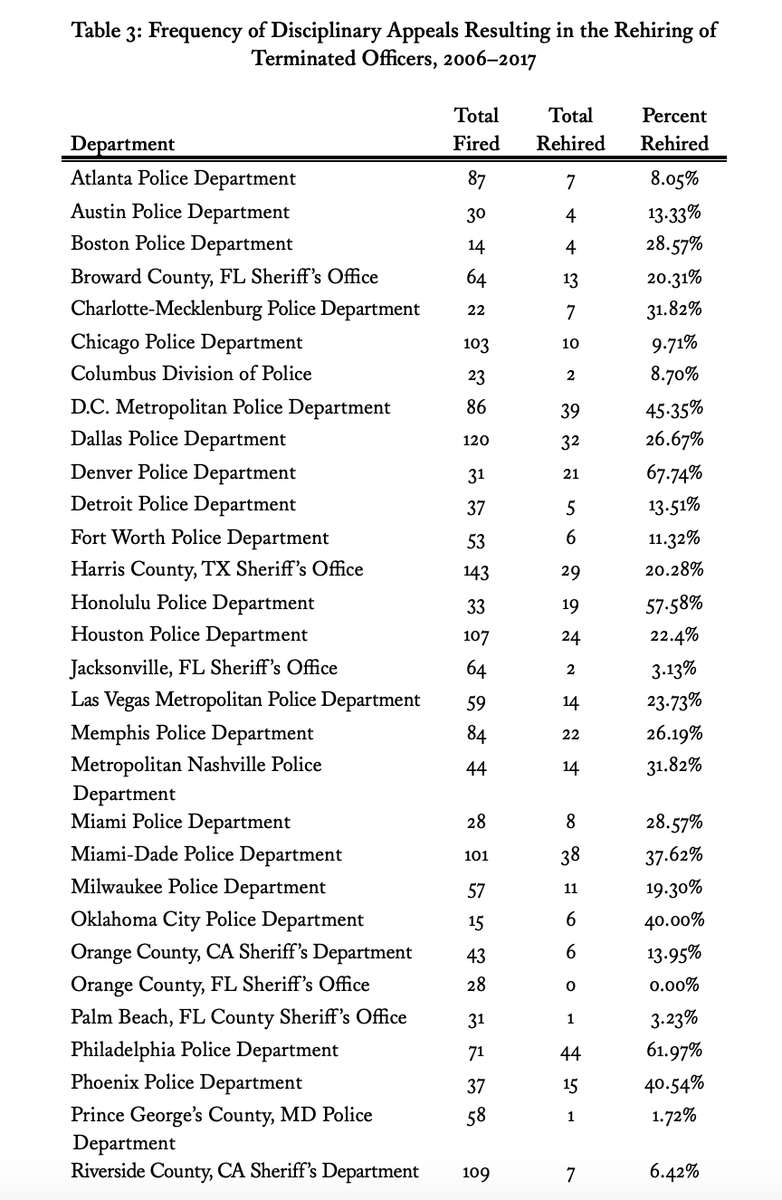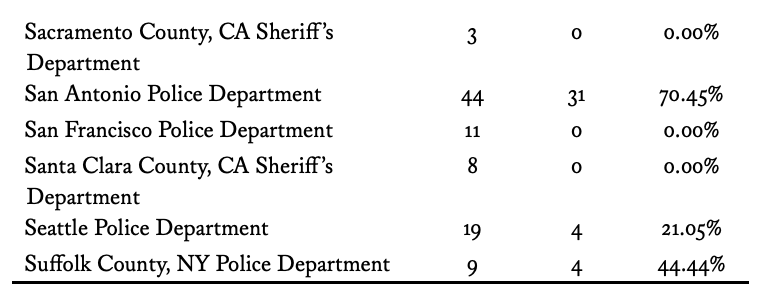Time for a mini-thread on police unions, because it is both tricky and very high stakes.
Collective bargaining is a powerful way to prevent against profiteering and to protect workers. Its a long-standing cornerstone of progressive politics.
In & #39;09 membership of public sector unions surpassed membership of private sector unions, as manufacturing and farming shrunk.
In & #39;09 membership of public sector unions surpassed membership of private sector unions, as manufacturing and farming shrunk.
But police unions have some unique characteristics. I& #39;ve been learning from the very good folks at Campaign Zero ( https://www.joincampaignzero.org/ )">https://www.joincampaignzero.org/">... and want to amplify some findings here.
Jurisdictions where there are police unions result in 40% more violent misconduct. https://static1.squarespace.com/static/55ad38b1e4b0185f0285195f/t/5d92b749ad13ae3d9b293125/1569896278868/Sheriffs+Unions+Misconduct.pdf">https://static1.squarespace.com/static/55...
Cities with police union contracts are 50% less likely to sustain excessive force complaints. https://www.bjs.gov/content/pub/pdf/ccpuf.pdf">https://www.bjs.gov/content/p...
Departments with union contracts are more likely to kill unarmed civilians. https://static1.squarespace.com/static/55ad38b1e4b0185f0285195f/t/5c491ac8b91c91570026453b/1548294860533/Police+Institutions+and+Police+Abuse+-+Evidence+from+the+US+%281%29.pdf">https://static1.squarespace.com/static/55...
This is data on cops who were *re-hired after being fired*, by region, typically after arbitration and appeal, supported by the union.
There is some cognitive dissonance for me, because I believe in collective bargaining.
But when it comes to public safety, and when the employer is *the people*, direct, transparent accountability must take precedence. And it currently isn& #39;t. By design.
But when it comes to public safety, and when the employer is *the people*, direct, transparent accountability must take precedence. And it currently isn& #39;t. By design.
Collective bargaining in police unions has become very sophisticated. And it isn& #39;t just about wages, but about insulating officers from accountability -- across the board.
These data confirm that at very granular detail. I encourage you to read all of these papers.
These data confirm that at very granular detail. I encourage you to read all of these papers.
Finally, there is a bill on the House floor that I want to call attention to: well-intended, but will serve to strengthen the influences above, and is counterproductive to its intended end. Call your congressperson, ask them to reconsider: https://www.congress.gov/bill/116th-congress/house-bill/1154">https://www.congress.gov/bill/116t...

 Read on Twitter
Read on Twitter



